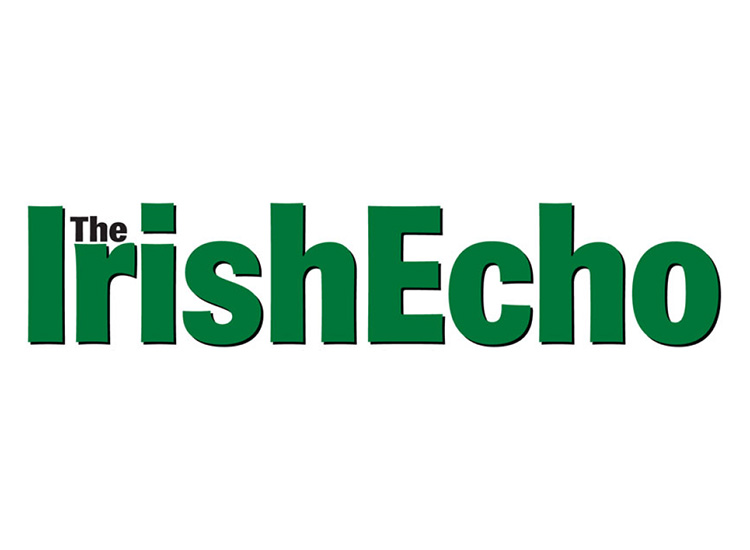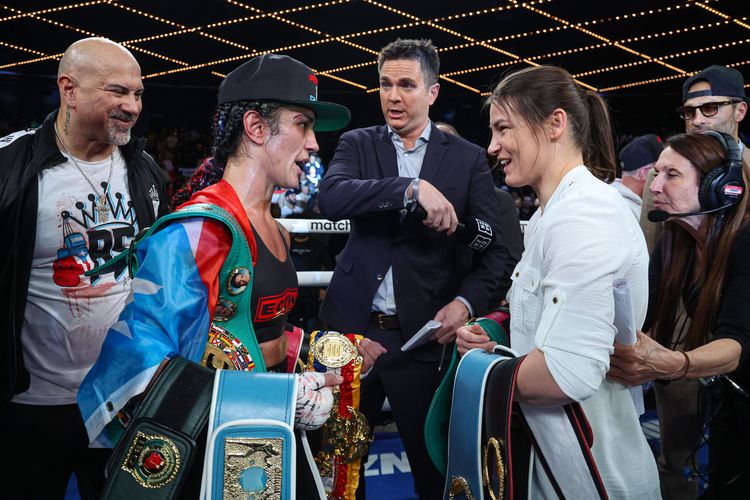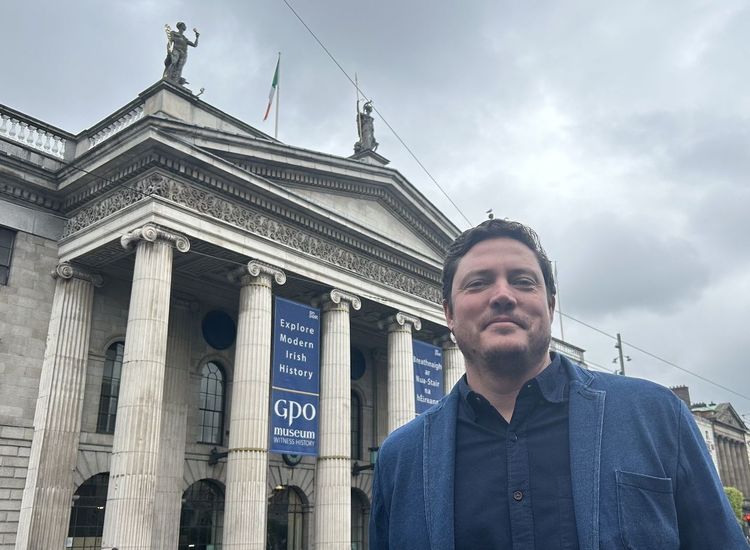The High Kings.
Music Notes / By Colleen Taylor
How can a band commemorate a decade while sounding brand new? There may not be a clear answer, but there’s certainly an exemplar: the High Kings of 2018 is a new, reenergized ensemble that nevertheless honors the tradition they’ve spent nearly years perfecting. I love to listen to the High Kings albums, particularly “Grace and Glory” (2017) and “Friends for Life” (2013), in my headphones on the train, or on my house speakers, but as I was reminded last week in Dublin, nothing compares to hearing them live. The four Kings—Darren Holden, Finbarr Clancy, Brian Dunphy and new member George Murphy—brought the house down in Vicar Street for their fourth headliner in that venue. The following day, the band named it as one of their most memorable performances to date. A series of showstoppers, surprise appearances, four standing ovations, and most importantly, truly emotive singing, proved to me once and for all that the High Kings are the Irish folk band of the 21st century.
Nowadays we expect the bands to sound different live than they do on our albums at home—at a concert, we aren’t surprised when the notes are a little sharper, the bridges a little less smooth, the instrumentation sometimes inorganic. That’s why it is such a welcome change to see the High Kings play—within seconds, you realize nothing is syndicated in their recording studio. The vocal talent of these four singers, who each bring their own character to the melodies, is truly astounding. They really do sound as good as they do on the album—better, even. The control, projection, and feeling of their collective voices, as well as their individual ability to carry a power ballad on their own, all evidence remarkable talent. Each singer in the High Kings could have a solo career (and they do) but the fact that they come together as this super-quartet makes the band truly extraordinary, and hearing their harmonies an inimitable experience.
There were too many highlights at Vicar Street to summarize here, but some cannot go unmentioned. The High Kings truly know how to play their audience, and belted out the homegrown ballads for a sold out house, including many Dubs. The cheers during the first song, Rocky Road to Dublin, echoed through the rafters, and raised the energy from zero to one hundred in a matter of seconds. The true show stopper, however, was “Auld Triangle,” sung a capella, and with nearly the entire audience joining in the chorus. Dubliner Brian Dunphy’s rendition of 1916 Kilmainham song, “Grace,” and later “Rare Auld Times,” both had the audience on their feet.
It became clear during the introductions, however, that many of the audience were there to see newest member, George Murphy (also a Dublin native), who has only been with the band for six months. Unlike his many friends in the audience, however, I was there with a less friendly purpose. Simply put, I wanted to check the new guy out. After 10 years as an HK fan, I had gotten rather used to the original High Kings sound, and was naturally disposed to skepticism. I sharply perked my ears as Murphy introduced his first song, “Star of the County Down.” Murphy speaks with a quiet, friendly, and thick North Dublin accent, but his voice is a force to behold. My mouth was on the floor with the first chorus—I was truly astounded—and by the end of the ballad, I was cheering just as loudly as his Dublin friends.
When Murphy sings, it’s like he walked out of a time machine, having just finished a gig in 1960s Dublin at O’Donoghue’s Pub. Murphy is a true anachronism: his voice is 1960s Irish folk revival, uncannily displaced in a young face. He sounds just like Luke Kelly, but with the added vocal power, drama, and projection of a classical singer. George Murphy brings a truly special and unique color to the High Kings sound: they had already represented, by virtue of member Finbarr Clancy (son of Bobby Clancy), the contemporary Clancy Brothers, but now, thanks to Murphy, they are a modernized fusion of Clancy Brothers and Dubliners, resulting a far more dynamic sound. There is history in Murphy’s voice—it conjures a past Dublin and a past Irish-American music scene in just a few notes. The other band members beautifully modernize Irish folk, and I love the newness of those renditions, but Murphy safely maintains their nostalgic roots.
If forced, however, I would have to say my own personal highlight of the gig was Darren Holden’s “Town I Loved So Well.” Back when I hosted Ceol na nGael on WFUV, we would play that song nearly every Sunday. I played it so many times I became desensitized to its meaning, the lyrics emptied of their original message. But it is impossible to passively listen to Darren Holden. His vocal style is tender and powerful, never overwrought, carrying a narrative in each note. As he sang that song, I could feel the audience hush and register its tragic narrative, as well as its small glimmer of hopefulness, despite it all. Holden transformed that first-person narrative about Derry into a communal, shared experience—as if he was singing to each audience member’s personal history, whether they be from Clare or Connecticut. Holden humbly received a well-deserved standing ovation.
Throughout the show, I was excited to hear new arrangements of some of my favorite songs, like a jaunty tune off their very first album, “Marie’s Wedding,” which they had reordered to highlight their individual vocals even more crisply. Finbarr Clancy sang a favorite from Tommy Makem, “Brennan on the Moor,” and George Murphy did his own rendition of “Spancil Hill.” The band played their best hits to perfection, but they also had some real surprises up their sleeve. George Murphy invited his father, George Murphy Sr., onstage for a duet of “Ragland Road”—a song that made Murphy famous on RTE’s “You’re a Star” as a teenager. Their voices were very similar—a clear, audible legacy—yet also separated by generational influences. In the final chorus, they held on to each other and visually demonstrated the power of sharing music across generational lines. The crowd couldn’t wait to get on their feet.
Then, at the end of the show, the Kings paid tribute to their recently-deceased manager, David Kavanagh, and to do so, they introduced the surprise appearance of Celtic Woman, for a collaborative version of “Parting Glass.” To witness the combined eight voices honoring the memory of the man who had made their acts was clearly, self-consciously momentous. The High Kings show at Vicar Street demonstrated not only that the band knows how to put on a spectacular show, but that they enable their fans to experience history—both through memory and tradition, and through their own history in the making. My parents always like to tell me about the time they got the last two tickets to see Makem and Clancy in Dublin in the 1980s. I have no doubt that in years to come, the people in that audience will be talking about the time they got to see the High Kings at Vicar Street in 2018.
The High Kings are coming back New York’s City Winery for an-already-sold-out show in September. If you didn’t get your tickets yet, don’t worry, there are still seats for their shows in Connecticut and Beacon, New York (Town Crier Cafe—where Makem and Clancy once played) that same month. Don’t miss the history.










